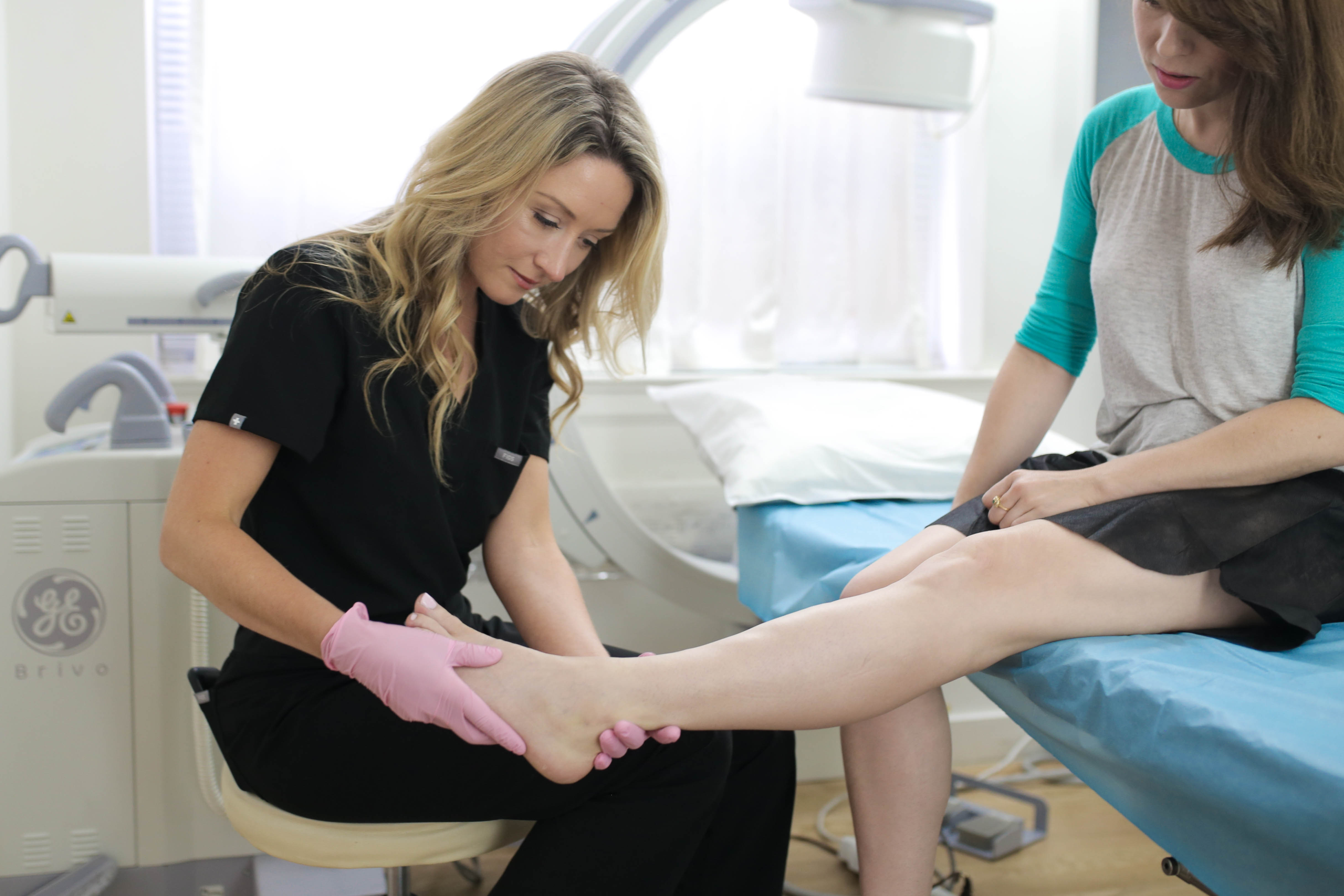How much does it cost to get your veins stripped?
How much does it cost to get your veins stripped? If you’re asking that question, there’s a strong chance you’ve been asked to undergo vein stripping with ligation, a complex surgical procedure for varicose veins and chronic venous insufficiency. The specific cost of vein stripping and vein ligation is hard to estimate because it depends on numerous factors, including your diagnostic results, the number of varicose veins on your legs, the location of spider veins, and the type of anesthesia used, and other factors.

However, you should avoid vein stripping, ligation, and other surgical treatments for varicose veins. In the not-so-distant past, vein stripping was the standard treatment for varicose veins, even though it involved complex surgeries, excisions, hospitalization, weeks of downtime, and a high risk of complications or vein disease recurrence. But thanks to the development of modern technologies, vein ligation, and vein stripping are no longer necessary. You should generally avoid vein doctors who recommend vascular surgeries — minimally invasive vein treatments are safer, more effective, and more convenient.
Vein Treatment Clinic is a group of state-of-the-art vein treatment clinics specializing in minimally invasive spider vein and varicose vein treatments. Our vein doctors diagnose the root cause of your vein problems and curate a personalized vein treatment plan, including radiofrequency ablation, endovenous laser ablation, venaseal, clarivein, and sclerotherapy. Minimally invasive procedures usually conclude within an hour and involve no downtime. The risk of complications is negligible, and they have a success rate exceeding 98% — they are significantly better than vein stripping.

If you’ve been asked to undergo vein stripping, please seek a second consultation from other board-certified vein doctors. You can find our vein treatment clinics in New York City, Long Island, San Jose, San Diego, Paramus, Clifton, Woodland Park, and Maryland. If you’re in the DC Metro Area, you can find our state-of-the-art vein treatment clinic in Bethesda, Maryland, just outside Washington, DC, in Silver Spring. Please schedule an appointment to explore your minimally invasive spider vein and varicose vein treatment options today.
Is vein stripping permanent?
Vein stripping is a permanent surgical procedure. After administering general anesthesia, the surgeon makes large incisions on the legs to physically extract the diseased saphenous vein. Once the diseased vein is surgically removed, it cannot return. Vein stripping might be permanent, but it’s also needlessly complicated. Minimally invasive vein treatments, such as endovenous ablation, use thermal or laser energy to close the diseased vein and reroute the accumulated blood into healthier veins. Both treatments are permanent, but minimally invasive treatments have a significantly lower risk of complications, such as deep vein thrombosis.
Does it hurt to have your veins stripped?
Vein stripping doesn’t hurt because you are under general anesthesia for the procedure. But you can expect considerable soreness and discomfort after the treatment, for which you will have to take pain medications. Comparatively, minimally invasive spider vein and varicose vein treatments are performed under local anesthesia, but you still don’t feel any pain. Since veins don’t have nerve endings, you don’t feel any pain. The post-treatment discomfort is also extremely mild and temporary — you may resume your daily activities immediately.
How long is recovery after vein stripping?
Vein stripping with ligation is a complex surgical procedure with considerable downtime. You will have to stay in the hospital for a day or two, following which you will need 2 to 4 weeks to recover from the procedure. You may resume working after a week or two, but you’ll have to avoid the most strenuous activities for at least one month. Comparatively, minimally invasive vein treatments allow you to resume your daily activities immediately — you can resume work and all other activities after the procedure.
What are the side effects of vein stripping?
The most common side effects of vein stripping include swelling, tenderness, bruising, skin discoloration, and pain. You may also experience certain complications, such as infections, severe pain, and blood clots in leg veins (deep vein thrombosis). Comparatively, minimally invasive vein treatments only involve mild post-treatment discomfort, swelling, and tenderness. The risk of complications, such as deep vein thrombosis, is negligible.
What are the best minimally invasive alternatives to vein stripping?
Endovenous laser ablation, radiofrequency ablation, venaseal, and ambulatory phlebectomy are some of the best minimally invasive alternatives to vein stripping. During endovenous ablation, the vein doctor channels thermal or laser energy into the diseased saphenous vein to destroy its walls, turning it into a hardened scar tissue eventually reabsorbed by the body. During venaseal, the vein doctor injects a medical-grade adhesive into the diseased vein to seal it shut, rerouting the accumulated blood into healthier leg veins.
What happens during ambulatory phlebectomy?
Ambulatory phlebectomy is one of the most effective treatments for superficial varicose veins. This procedure removes the visible varicose veins but doesn’t treat underlying vein disease, so it should ideally be performed after the primary vein treatments. During ambulatory phlebectomy, the vein doctor administers local anesthesia and makes several small incisions on the skin’s surface, through which they physically extract the unhealthy varicose veins. The incision marks soon heal completely.
Will my insurance plans cover the cost of varicose vein treatment?
Varicose vein treatments are usually covered by most health insurance plans, including Medicare. If you have chronic venous insufficiency, large varicose veins, and symptoms that affect your daily life, your insurance plans may cover the cost of varicose vein treatment. However, some health insurance plans stipulate that you must wear compression stockings for a few weeks before vein treatment to become eligible for insurance coverage.
Vein Treatment Clinic provides hassle-free insurance verification for all patients. If you’re concerned about insurance coverage for your varicose vein treatment, please claim hassle-free insurance verification at your nearest vein treatment clinic in Washington DC, New York, California, or New Jersey.








